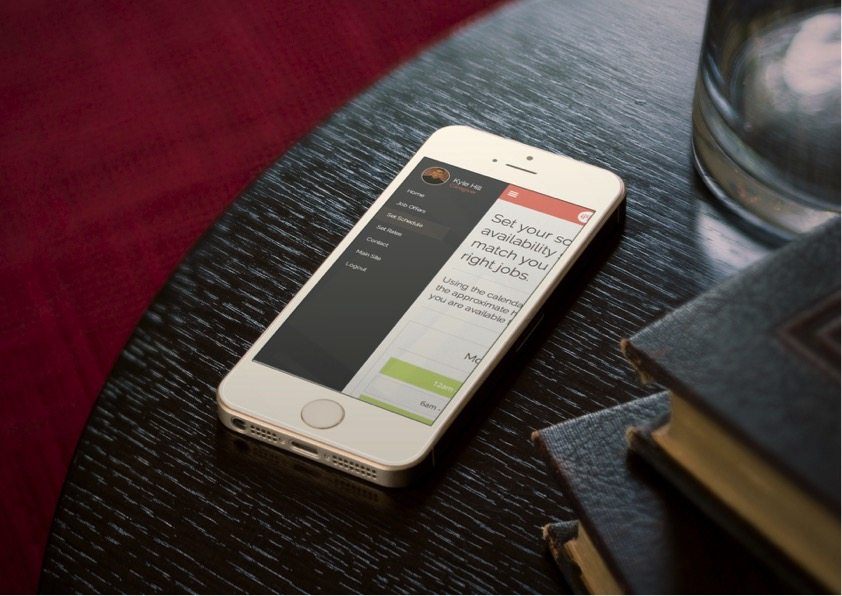HomeHero, a California-based startup disrupting the way in-home caregivers and clients connect with each other, has secured $20 million in Series A funding and is expanding into new markets.
The company, which launched in January 2014, now has raised a total of $23 million. This round was led by Graham Holdings Company with participation from Social+Capital Partnership, Tencent Holdings Limited and The Launch Fund, Inc. The previous $3 million seed round last year was led by Social+Capital Partnership and included Science Inc. and Jason Calacanis of The Launch Fund.
The funding announcement, made today, comes on the heels of another eye-popping capital raise for a similar new company, Honor, and further confirms that investors are ready to put down large sums for home care-related tech ventures.
Investors are seeing parallels between home care and other sectors—such as transportation and shopping—that have been transformed by technology that can bring more efficiency to a fragmented market, HomeHero co-founder and COO Mike Townsend tells HHCN.
“We have almost 2,000 brick-and-mortar home health agencies in California, handling caregivers, marketing people, staffing, managing lists of caregivers,” he says. “It seems obvious that some technology company is going to address the inefficiencies.”
HomeHero comes out of startup incubator Science Inc., in Santa Monica, and honed its business model in the Los Angeles area. It then expanded to San Diego, and found that its model was repeatable, Townsend says.
The company now has about 20 staff members and roughly 1,000 caregivers throughout the Los Angeles and San Diego areas. The company says it has seen a “huge” growth in referrals from existing clients and has doubled the number of shifts since March 2015. It will use the Series A funds to expand in San Diego and also launch in the San Francisco area.
Honor also is targeting the Bay Area.
While Honor and HomeHero are in some ways similar—cutting out the agency middleman to help caregivers and clients connect directly via the Internet—there are some key differentiators, Townsend says.
He points out that while Honor has clout in investor circles—in large part because founder Seth Sternberg sold his previous company to Google—it is new to the game, while HomeHero has established its bona fides in the Southern California markets.
And HomeHero is staking a claim to fully supporting users throughout the whole home care process, from helping match caregivers and clients through scheduling, payment, handling substitutions if a caregiver is unavailable, and other tasks that can become “pain points,” Townsend says.
Other new home care technology companies are structured more as job boards and less as full-service solutions, he says.
HomeHero accepts about 12% of caregiver applicants, he says, and they usually come from schools and accreditation organizations. They go through a 15-point online screening, a phone interview, and an orientation session/in-person interview. This is recorded in high-definition video and posted to the HomeHero website. These videos are another way HomeHero stands out, and they give would-be clients another tool in making their hiring decision, Townsend says.
The system is adaptable, he emphasizes.
“Some families know what they want, so they go online and choose someone, and send a job request out,” he says. “Some are going through this for the first time and want to talk to someone, so we have a team that is trained in how to hire a caregiver.”
About 50% of HomeHero users take advantage of the team consultations, he estimates.
Once a client and caregiver are matched, there is a review system to further build trust and transparency, he says. While the caregivers are hired directly by the client or families, HomeHero is insured for up to $1 million in theft protection and $2 million in professional liability coverage.
HomeHero also is using some of the $20 million to make new hires. One of the first is Joe Nigro, who is coming on board as head of growth. Nigro is the former East Coast General Manager for home services startup Handy, and he played a key role in helping Handy expand throughout that region, Townsend says.
HomeHero will not be expanding its services to include Handy-type home repair and similar offerings, Townsend says. The company also will remain wholly private duty for the moment, although he notes that the Medicare/Medicaid-reimbursed home health space is a $30 billion parallel market that it would make sense for HomeHero to one day tap.
As for future growth, Townsend and his colleagues have their eyes on some particular locales.
“We’re going to go state-by-state,” he says. “We’ll probably focus on states with the largest population of seniors that are close to us, such as Arizona, the Phoenix area. There’s also Texas. We haven’t committed to any other metro areas other than the Bay Area, but that’s how we think about growth.”
Written by Tim Mullaney




